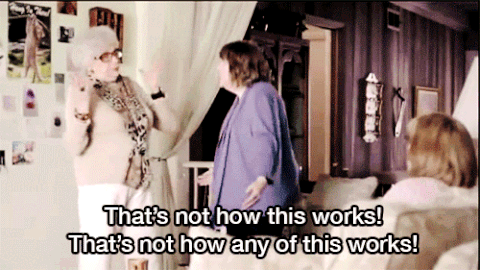Tardy people may have benefits that punctual people do not — but is that the only thing that matters?
Lenten Campaign 2025
This content is free of charge, as are all our articles.
Support us with a donation that is tax-deductible and enable us to continue to reach millions of readers.
A few Christmases ago, I bought my sister a clock with the numbers strewn around the bottom and the words “Whatever, I’m late anyway” written below the hands.
It’s a running joke between us because like her, I also tend to be habitually late. Over the years I’ve been convicted by people who believe that being late is rude, selfish, and positively uncivilized, and I’ve tried to modify my behavior accordingly. But no matter how hard I try or how early I begin preparations to leave, I can’t ever seem to be any earlier than one minute late.
It doesn’t help that I don’t prize punctuality myself. When I invite guests over, I am overwhelmingly relieved when they are 10 to 30 minutes late. A guest who is spot on time usually catches me putting frantic finishing touches on everything (on a good day), while a guest who is early catches me totally off-guard and unprepared. In fact, the only way I can understand how people feel about being late is by imagining that it’s the same way I feel about being early — it’s flat-out rude, and feels like a personal affront.
At times, I’ve wondered if this is a manifestation of some deep, fatal flaw in my character, like unconscious narcissism or psychopathy. (Because I’m never overly dramatic.) The truth is that I feel incredibly panicked and guilty when I realize I’m going to be late, and I genuinely hate giving the impression that someone’s else’s time isn’t valuable to me, because it is. It’s just that my own time seems to operate according to unpredictable laws … which, according to Southern Living, might not be a fatal flaw at all. In fact, being chronically late might help me live longer and be more successful:
As Diana DeLonzor wrote in her book, Never Late Again, many late people tend to be both optimistic and unrealistic. That means they truly, deeply believe that they can, say, go for a run, take a shower, stop at the Piggly Wiggly to buy groceries for dinner, pick up the dry cleaning, and still make it on time to pick up the kids from school all in one hour. That is a clearly optimistic schedule, yet many chronically late people truly believe it’s possible, even when proven time and again that it’s not. That level of optimism reaches far beyond an over-planned schedule, though. According to researchers at Harvard Medical School, “Research tells us that an optimistic outlook early in life can predict better health and a lower rate of death during follow-up periods of 15 to 40 years …”
Finally, it’s important to understand that for some people, lateness is not entirely their fault, because they may have a completely different sense of time than you. A team of scientists put one minute on the clock and asked two different groups of people with Type A (ambitious, driven) or Type B (relaxed, creative) personalities and asked them to guess how much time had passed. Their study revealed that people with Type A personalities guessed that an average of 58 seconds had passed, while those with Type B personalities thought an average of 77 seconds had passed. That 19 second difference in perception could add up quickly leading someone to be very late to lunch.
I have never identified with anything more in my life. Planning to cram an absurd amount of activities into a disproportionately tiny window of time is practically a daily ritual for me, and no matter how many times I end up frazzled and late, I keep doing the same thing. Time seems to stretch out endlessly at the beginning of the day and move slowly, and then suddenly at 1 o’clock the minutes fly by and the day is bafflingly over.
And while I wish I could just carry a printout of this research for every occasion when I’m late, it still doesn’t address the core problem of consideration for others. Some people are genuinely hurt by tardiness, and no amount of research or explanations will undo that hurt. In order to be considerate of others, I’ll keep trying to figure out how to see time more realistically and be more punctual.
On the flip side, I might start requesting that people be a half-hour late when they come see me. After all, doesn’t consideration go both ways?


Read more:
12 Time management hacks to get the most out of your day








